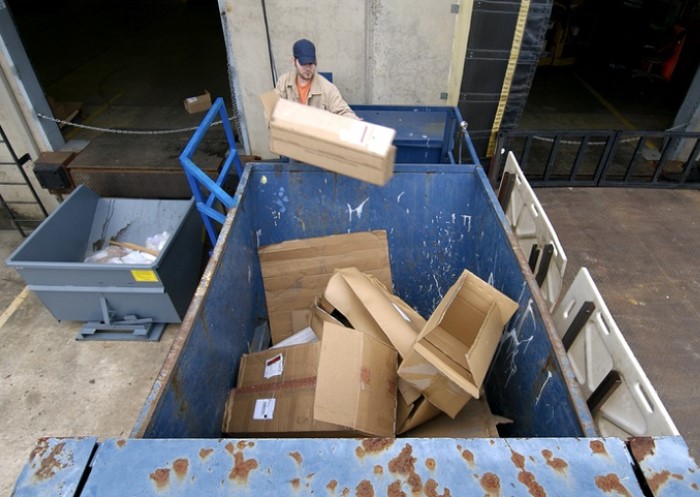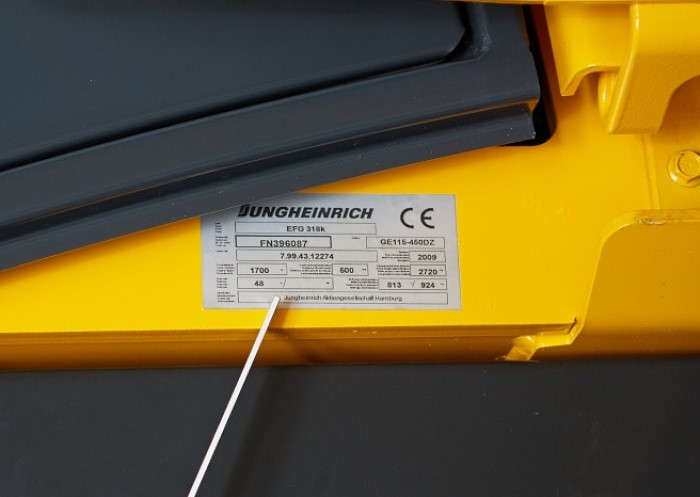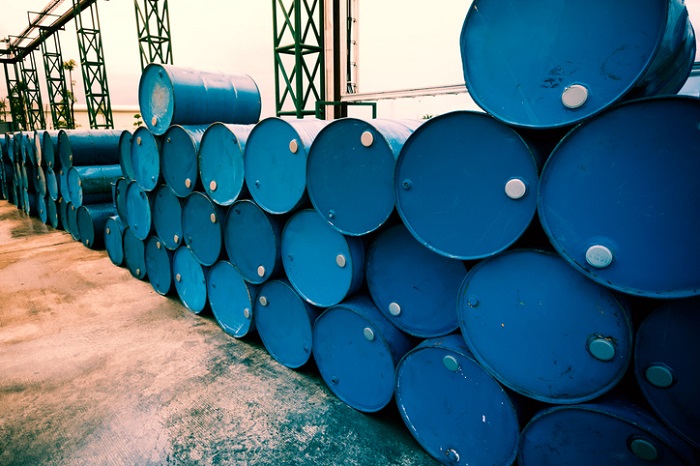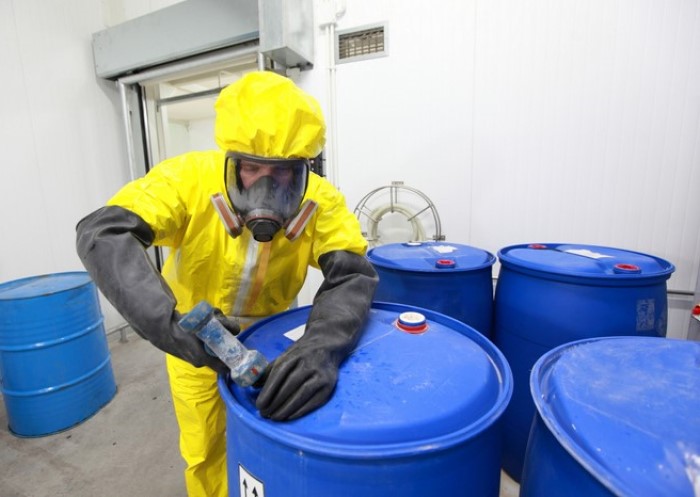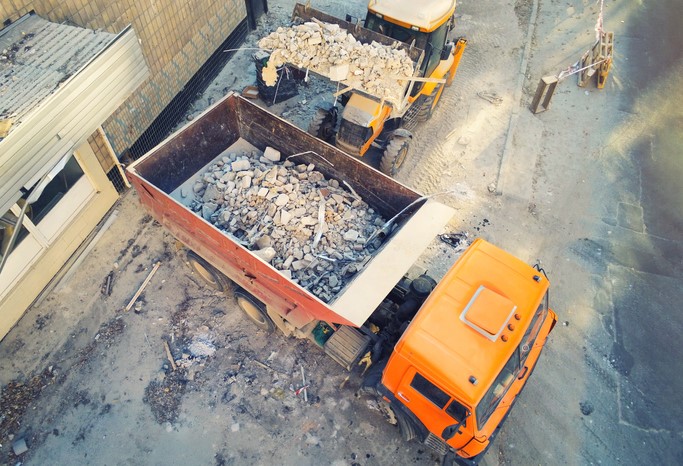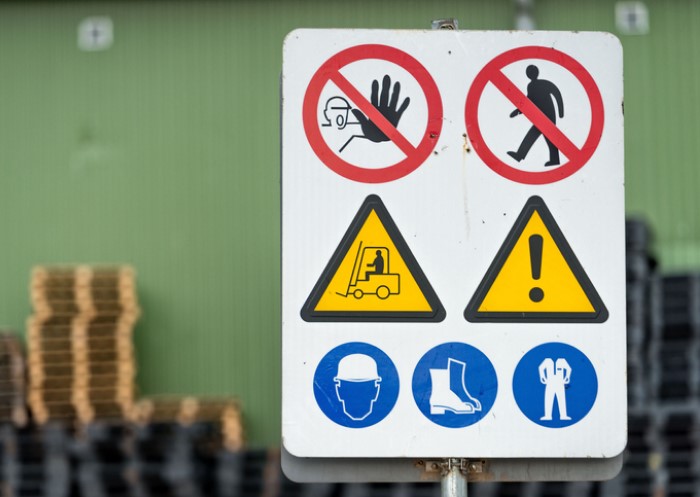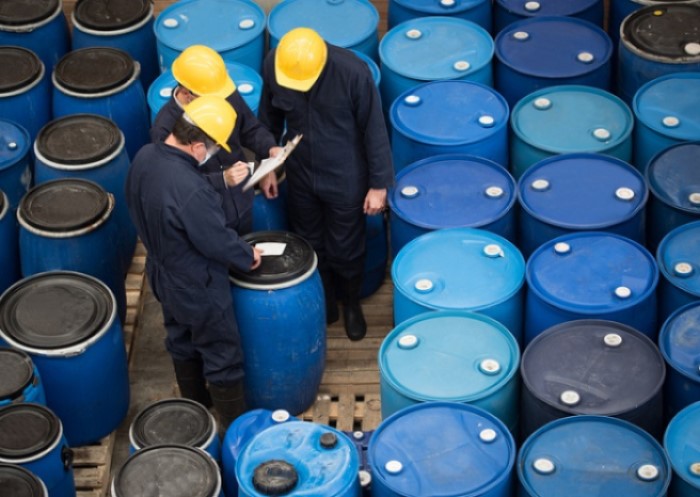Table of contents
Environmentally friendly waste disposal is one of the greatest challenges of our time. This makes it all the more important to dispose of commercial and industrial waste correctly. It is important for business owners to act responsibly but it is also true that a well-thought-out waste disposal strategy should save time and money. Some commercial and industrial waste can be disposed of through traditional containers or disposal systems. However, there is also hazardous material storage and disposal of which must comply with special requirements and regulations.
General regulations for the disposal of private and commercial waste
In the UK, commercial waste must be disposed of in a responsible manner according to guidelines laid down by the Environment Agency.
These regulations stipulate that you must:
- Keep waste to a minimum by doing everything you reasonably can to prevent, reuse, recycle or recover
- Sort and store waste safely and securely
- Complete a waste transfer note for each load that leaves your premises
- Check if your waste carrier is registered
- Not allow the waste carrier to dispose of your waste illegally
In addition, there are numerous national and international laws and regulations that must be followed for proper waste disposal. These include regulations for waste that could cause damage to the environment if not disposed of in the correct way.
What is commercial waste?
Some types of commercial waste can be found in private households as well as commercial organisations, including residual waste, paper and cardboard, glass, and organic waste. These materials should be disposed of separately in the appropriate containers and collected by a contracted waste disposal company.
However, hazardous waste is also frequently generated, particularly in industrial companies. This includes:
- Waste oil
- Construction waste
- Chemicals
- Electrical waste
- Wood
- Bulky waste
- Plastics
As in private households, businesses must separate waste and dispose of hazardous materials in the appropriate way. However, there are also some special regulations to comply with for commercial enterprises.
Commercial waste regulations
Specific regulations relating to commercial waste are laid out in various documents, including the Controlled Waste Regulations 2012 and the Hazardous Waste Regulations 2005.
The following types of waste must be collected separately for waste separation in trade and industry:
- Cardboard and paper
- Plastics
- Glass
- Organic waste
- Wood
- Textiles
- Metals
- Residual waste
Commercial waste also includes any materials that come from:
- Construction
- Demolition
- Industry
- Agriculture
For construction waste, materials must also be collected separately, including:
- Insulation material
- Bitumen mixtures
- Concrete
- Bricks
- Tiles and ceramics
If industrial waste separation is technically impossible or economically unviable, all waste can be collected in a commercial waste bin. The company is then responsible for dealing with the waste in an appropriate way.
Every business is obliged to keep documentation relevant to its commercial waste. You must be able to prove that you collect and dispose of waste in accordance with the regulations. If you are found to be illegally disposing of commercial waste you may be prosecuted, with a maximum penalty of a £50,000 fine.
There is a documentation obligation for the waste disposal of every company. Those responsible must prove digitally or in writing that they collect and dispose of waste in accordance with regulations. Photos of the waste containers, certificates from the recycling plant or proof of disposal can be used for this purpose. If documentation or waste disposal is not carried out correctly, fines may be imposed.
Correct commercial waste disposal – what can go into commercial waste?
If you have a separate collection system and want to dispose of generic commercial waste, you can do this in the usual way. If you are generating more than the normal residual or recyclable waste, it is your responsibility to understand and comply with the relevant rules and regulations for proper hazardous waste disposal.
You must store waste safely and securely by:
- Keeping waste in a secure place
- Using suitable containers that will stop waste from escaping
- Labelling containers clearly with the type of waste they contain
- Using covers to stop waste from blowing away
- Using waterproof covers if rain could cause contaminated run-off or prevent the waste from being reused
Store different types of waste separately, so that:
- They do not contaminate each other
- They can be reused more easily
- You can complete the waste transfer note correctly
The following materials are considered general waste:
- Plastics and polystyrene
- Metals
- Wood
- Textiles
- Scrap metal
- Residual waste
These wastes are to be collected separately:
- Glass
- Organic waste
- Plant waste
- Hazardous waste
- Medical waste
Containers for commercial waste disposal
There are different types of waste bins and containers for the disposing of commercial waste. Waste bins made of plastic and stainless steel are suitable for indoor and outdoor use. For waste that has no place in the commercial waste bin, there are also recyclables and special collectors. This makes waste separation easier and more convenient.
Please note: The regulations mentioned above represent only a selection of the most important legal requirements. Please refer to the listed organisations and directives for more detailed information. If in any doubt, consult experts or contact the relevant regulatory authorities.
Image source:
© gettyimages.de – dlewis33

